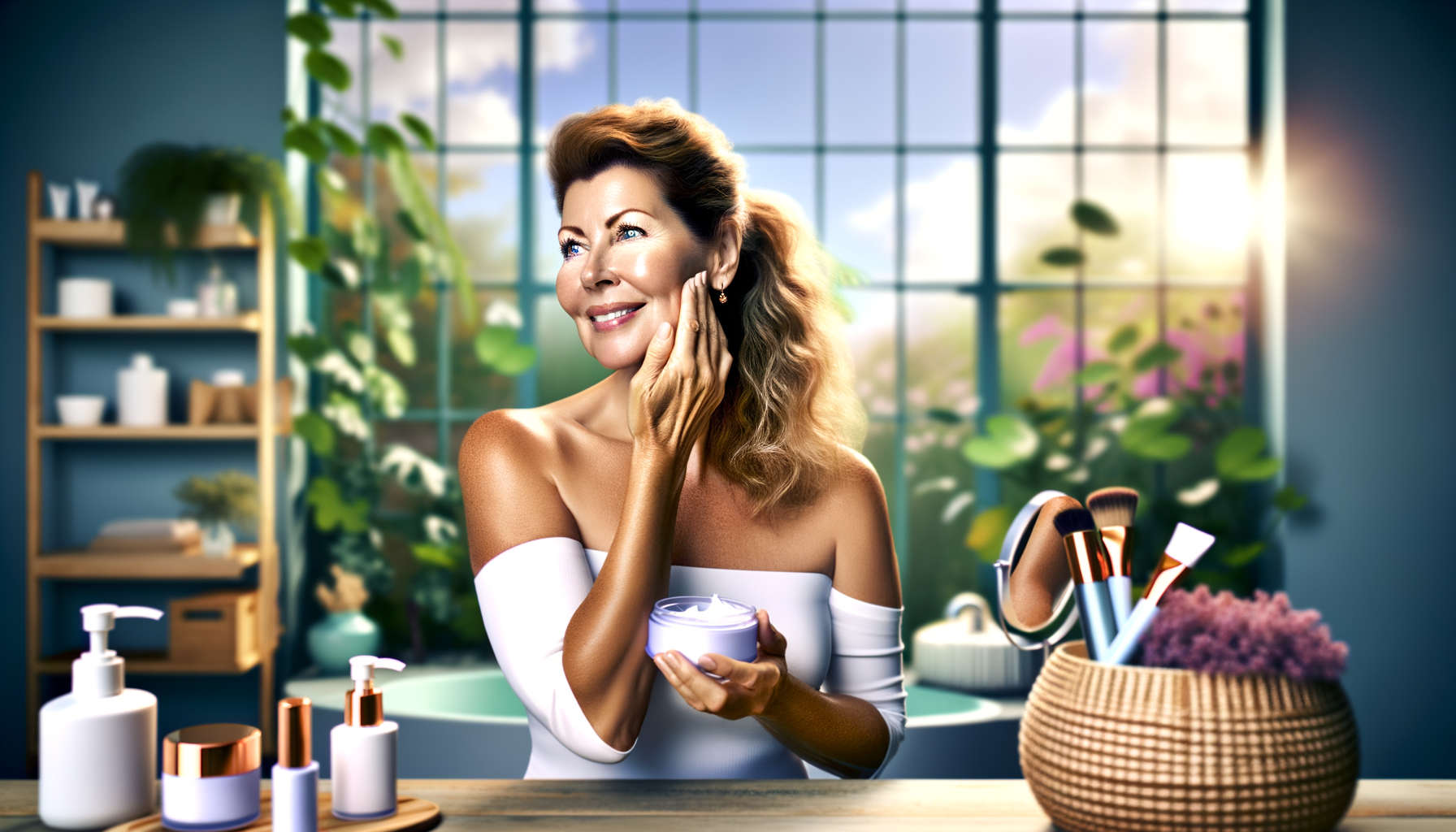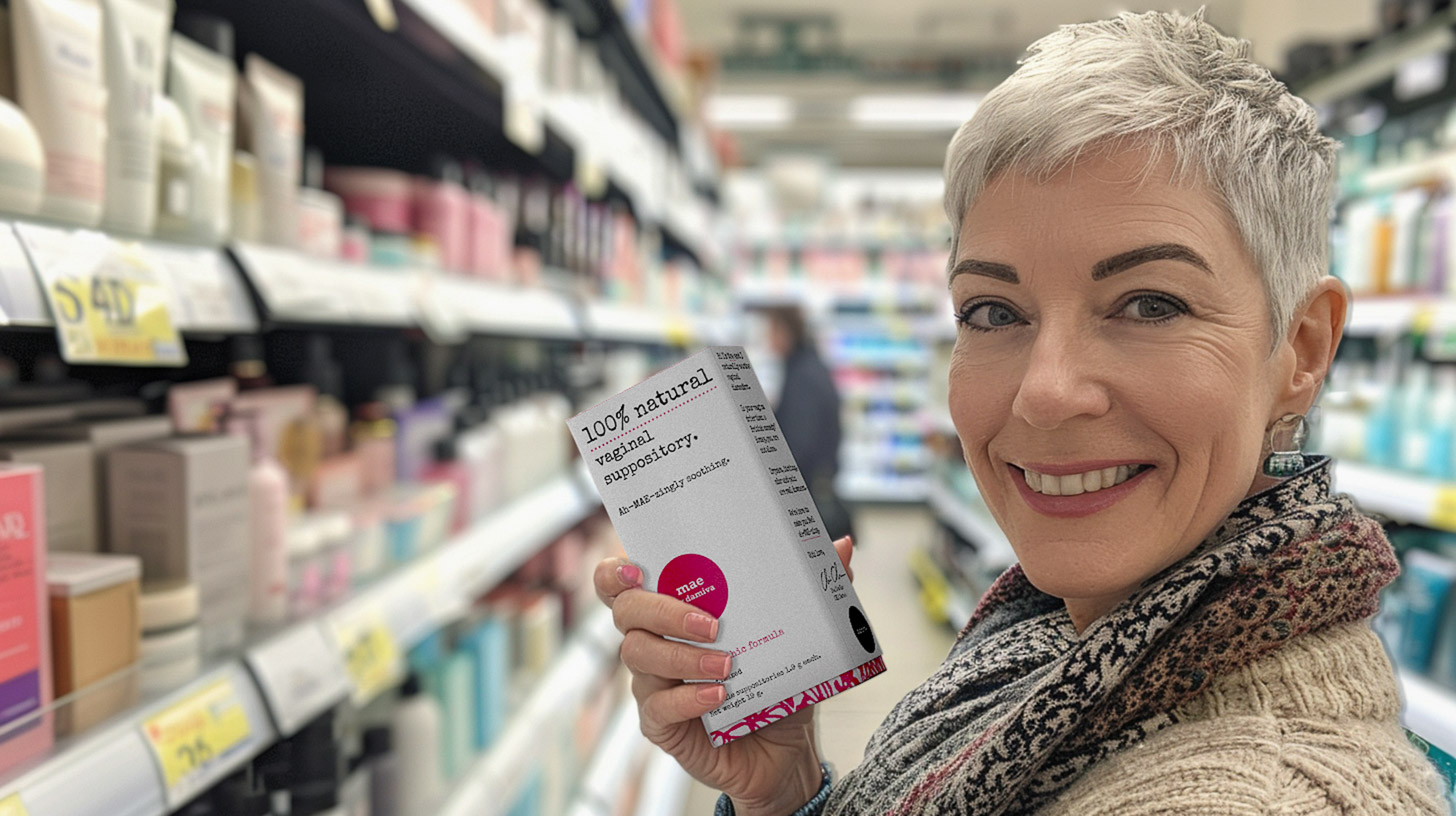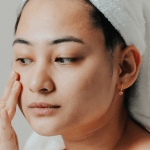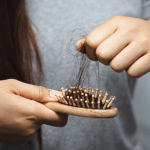
Introduction
Understanding Menopause and Its Effects
Menopause marks a significant transition in a woman’s life, typically occurring in the late 40s to early 50s. It signifies the end of menstrual cycles and fertility, brought on by the natural decline in the production of reproductive hormones, including estrogen. This hormonal shift can lead to a range of physical and emotional effects, such as hot flashes, night sweats, mood swings, and changes in sexual function. Menopause is not a singular event but a gradual process that can span several years, often categorized into three stages: perimenopause, menopause, and postmenopause.
The Role of Estrogen in Skin and Hair Health
Estrogen plays a pivotal role in maintaining skin and hair vitality. It promotes skin elasticity, hydration, and thickness by stimulating the production of collagen, elastin, and hyaluronic acid. In hair health, estrogen helps to regulate the growth cycle, contributing to hair density and texture. As estrogen levels decline during menopause, women may notice their skin becoming drier, thinner, and less resilient, while their hair may become finer and sparser. These changes can significantly impact a woman’s self-esteem and quality of life.
The Purpose of the Article
The aim of this article is to delve into the specific impacts of estrogen deficiency on skin and hair during menopause and provide practical tips for maintenance. By understanding the underlying hormonal changes and their manifestations, women can better navigate this natural life stage. The article will offer insights into common skin conditions associated with menopause, explore the connection between estrogen and hair changes, and suggest holistic skin and hair care strategies. It will also touch upon the emotional well-being of menopausal women, emphasizing the importance of self-care and community support. Ultimately, the article seeks to empower women to embrace their menopausal journey with confidence and grace.
Estrogen and Skin Changes During Menopause
How Estrogen Deficiency Affects Skin
Estrogen plays a crucial role in maintaining skin health. Its deficiency following menopause leads to atrophy and accelerated skin aging. Estrogen targets various skin cells, including keratinocytes, fibroblasts, and melanocytes, and is involved in processes such as angiogenesis, wound healing, and immune responses. With estrogen insufficiency, the skin becomes thinner, less collagenous, less elastic, more wrinkled, drier, and less vascular. This compromises the skin’s protective function and is associated with impaired wound healing, hair loss, pigmentary changes, and an increased risk of skin cancer.
Common Skin Conditions Associated with Menopause
Menopause can bring about a variety of skin conditions. Women may experience dryness, itching, flushing, and acne. Conditions like atopic dermatitis and psoriasis may worsen. Additionally, menopause is linked to the development of age spots and spider veins, further altering the skin’s appearance.
The Impact on Skin Elasticity and Hydration
The decline in estrogen levels during menopause significantly affects skin elasticity and hydration. Estrogen is known to enhance skin moisture by increasing hyaluronic acid and glycosaminoglycans, as well as promoting collagen production which contributes to skin’s firmness. Without sufficient estrogen, the skin loses its plumpness and resilience, leading to sagging and the formation of fine lines and wrinkles.
Strategies to Protect and Nourish Menopausal Skin
- Moisturize regularly to combat dryness and improve skin barrier function.
- Use products containing phytoestrogens, which can mimic the effects of estrogen on the skin.
- Consider topical retinoids to promote skin renewal and collagen production.
- Protect the skin from UV damage with broad-spectrum sunscreens.
- Stay hydrated and maintain a balanced diet rich in antioxidants and omega-3 fatty acids.
- Consult a dermatologist for professional treatments like laser therapy or chemical peels that can improve skin texture and tone.
Estrogen and Hair Changes During Menopause
Understanding Hair Thinning and Loss
Menopause often brings about a noticeable change in hair density and texture due to hormonal fluctuations. Estrogen plays a crucial role in promoting hair growth and maintaining hair follicle health. As estrogen levels decline during menopause, many women experience hair thinning and loss. This condition, known as female pattern hair loss (FPHL), is characterized by a gradual reduction in hair volume, particularly on the crown and frontal scalp. The hair growth cycle may also be disrupted, leading to shorter growth phases and longer resting phases, which contributes to overall hair thinning.
The Connection Between Estrogen and Hair Texture
Estrogen not only influences hair density but also affects hair texture. Healthy hair relies on a balance of hormones, including estrogen, to maintain its strength and elasticity. During menopause, the decrease in estrogen can lead to hair becoming finer, drier, and more brittle. This change in texture can make hair more susceptible to breakage and can alter the way hair responds to styling, coloring, and other chemical treatments.
Natural Approaches to Support Hair Health
While hormonal changes during menopause can impact hair health, there are natural approaches that can help support and maintain hair vitality:
- Nutrition: A balanced diet rich in vitamins and minerals, particularly those known to support hair health such as biotin, vitamin D, iron, and omega-3 fatty acids, can help nourish hair from the inside out.
- Gentle Hair Care: Using mild shampoos, avoiding excessive heat styling, and minimizing chemical treatments can help protect hair from further damage.
- Scalp Massage: Regular scalp massages can stimulate blood flow to the hair follicles, potentially promoting hair growth and health.
It’s important to note that while these natural approaches can be beneficial, they may not fully counteract the effects of decreased estrogen. For some women, consulting with a healthcare provider about hair health during menopause is advisable.
Holistic Skin Care Tips for Menopausal Women
Dietary Adjustments for Skin Health
During menopause, the skin’s needs change, and so should your diet. Emphasize foods rich in antioxidants, healthy fats, and vitamins to support skin health. Incorporate omega-3 fatty acids from fish, flaxseeds, and walnuts to help maintain the skin’s lipid barrier. Antioxidant-rich fruits and vegetables can combat free radical damage, while foods high in vitamin C and vitamin E support collagen production and skin repair. Soy products containing isoflavones may also mimic estrogen’s effects, potentially benefiting the skin.
The Importance of Hydration
Hydration is crucial for maintaining skin elasticity and flushing out toxins. Aim for at least eight glasses of water a day, and consider adding hydrating foods like cucumbers, celery, and watermelon to your diet. Remember, caffeine and alcohol can dehydrate, so balance these beverages with extra water intake.
Beneficial Skin Care Practices
Natural Ingredients to Look For
When selecting skincare products, natural ingredients can be particularly beneficial for menopausal skin. Look for hyaluronic acid for its unparalleled hydrating properties and emollient plant butters to moisturize, soothe and hydrate. Stay away from water-based skincare as water is a breeding ground for bacteria, mold and microbes, which means that water-based lotions, creams, balms etc. contain chemical preservatives. These are not only deadly to the microbes but also harmful for humans; many act as endocrine disruptors (hence they are called endocrine-disrupting chemicals, EDC, which means they disturb your hormone system, which, after all, contributes even more to dry and / or sagging skin.
Best use 100% all-natural skin care like the ones from Damiva: water-free, chemical-free, very rich and long term safe.

⭐️⭐️⭐️⭐️⭐️ “My biggest symptoms are GSM, and because of Mae, they are mostly addressed. I have lived Mae for almost 7 years, and I endorse it all the time.” Margaret C., Damiva Mae Customer
⭐️⭐️⭐️⭐️⭐️ “I’m in my 60’s and post menopause. My doctor recommended I try Damiva MAE, after taking me off hormones (due to developing cysts). I LOVE it. All natural, no hormones, Great vaginal moisturizer. Easy to insert and pleasant smell. So Thankful for MAE.” Paula, Damiva Mae Customer
Natural Hair Maintenance Strategies
Gentle Hair Care Routines
During menopause, hair becomes more fragile and prone to breakage, making a gentle hair care routine essential. To minimize damage, it’s advisable to reduce the frequency of hair washing, allowing the scalp’s natural oils to condition the hair. When shampooing, opt for gentle, moisturizing shampoos free from harsh sulfates. Additionally, avoid excessive brushing or combing, especially when hair is wet, as this can lead to increased hair fall. Instead, use a wide-tooth comb to gently detangle.
Heat styling should be limited to prevent further weakening of the hair. If using heat is necessary, always apply a heat protectant and choose the lowest effective temperature. Embrace your hair’s natural texture when possible, and consider air-drying instead of using a blow dryer. Regular trims are also beneficial to remove split ends and promote healthier-looking hair.
Nutrients and Supplements for Hair Strength
Nutrition plays a pivotal role in maintaining hair health. A diet rich in protein, vitamins, and minerals is vital for supporting the hair’s structure and growth. Key nutrients include biotin, vitamins A, C, D, and E, iron, and omega-3 fatty acids. These can be found in foods like eggs, leafy greens, nuts, seeds, and fatty fish.
In addition to a balanced diet, supplements may be beneficial for those experiencing significant hair thinning or loss. Ingredients such as biotin, zinc, and saw palmetto have been shown to support hair strength and density. However, it’s important to consult with a healthcare provider before starting any supplement regimen to ensure they are appropriate for your individual health needs.
Scalp Treatments and Massages
The health of the scalp is closely linked to the condition of the hair. A healthy scalp promotes hair growth and improves hair strength. Incorporating scalp treatments and massages into your routine can stimulate blood circulation, supporting the delivery of nutrients to hair follicles. Use gentle, circular motions with your fingertips or a scalp massager to invigorate the scalp.
Hydrating masks or oils can also be applied to the scalp to nourish and moisturize. Ingredients like coconut oil, argan oil, and aloe vera provide hydration and can help to soothe any dryness or irritation. Leave these treatments on for a specified time before washing to allow for maximum absorption.
By adopting these natural hair maintenance strategies, you can help mitigate the effects of menopause on your hair’s health and appearance. Remember, while these tips can aid in maintaining hair strength and vitality, individual results may vary, and it’s always best to seek personalized advice from a dermatologist or trichologist for specific concerns.

Bette 100% All-Natural Relaxing Lavender Body Lotion.
Chemical-Free
Your relaxing night time body moisturizer to leave the day’s stress behind. Decompress and wish your body good night with the calming scent of lavender.
Emotional Well-being and Self-care
The Psychological Impact of Menopausal Changes
Menopause is not just a physical transition; it’s a complex process that can significantly affect emotional well-being. As estrogen levels fluctuate and decline, many women experience mood swings, irritability, anxiety, and even depression. These emotional changes are often compounded by the physical symptoms of menopause, such as sleep disturbances and hot flashes, which can further exacerbate stress and fatigue. The psychological impact of these changes can be profound, leading to a sense of loss or a decrease in self-esteem as women grapple with the end of their reproductive years and visible signs of aging.
Building a Supportive Community
During this time of transition, building a supportive community can be invaluable. Connecting with friends, family, or joining a support group can provide a space to share experiences and coping strategies. Engaging in social activities and maintaining close relationships can help combat feelings of isolation and provide emotional support. Additionally, seeking the guidance of a therapist or counselor who specializes in menopausal issues can offer professional insight and help in navigating this phase of life.
Self-care and Its Role in Menopause Management
Self-care is a critical component of managing the emotional and psychological aspects of menopause. It involves taking proactive steps to maintain mental health and overall well-being. Here are some self-care strategies that can help:
- Mindfulness and Relaxation: Practices such as meditation, deep-breathing exercises, and yoga can reduce stress and promote a sense of calm.
- Physical Activity: Regular exercise not only helps with physical symptoms but also improves mood and reduces anxiety.
- Quality Sleep: Establishing a regular sleep routine can help alleviate mood swings and irritability associated with sleep disruption.
- Healthy Diet: A balanced diet rich in nutrients can have a positive effect on energy levels and emotional health.
- Hobbies and Interests: Engaging in activities that bring joy and fulfillment can provide a sense of purpose and boost self-esteem.
By prioritizing self-care, women can better manage the emotional rollercoaster of menopause and maintain a positive outlook on life. It’s important to remember that self-care is not selfish; it’s a necessary practice for maintaining health and happiness during this significant life change.
Conclusion
Embracing the Menopausal Journey with Confidence
Menopause is a natural transition in a woman’s life, yet it often brings about changes that can affect one’s self-esteem and quality of life. Understanding the influence of estrogen on skin and hair is crucial in navigating this journey with confidence. Estrogen, a key hormone, plays a significant role in maintaining the structural integrity and appearance of skin and hair. As estrogen levels decline during menopause, women may experience dryness, loss of elasticity, and thinning hair. However, by embracing this new phase with knowledge and proactive self-care, women can continue to feel empowered and vibrant.
Summary of Tips for Skin and Hair Care
- Moisturize regularly: Use products that contain hyaluronic acid and ceramides to help retain moisture.
- Protect your skin: Apply broad-spectrum sunscreen daily to protect against UV damage.
- Nourish from within: Consume a balanced diet rich in antioxidants, vitamins, and omega-3 fatty acids.
- Be gentle: Opt for mild hair care products and avoid excessive heat styling to prevent hair damage.
- Stay hydrated: Drink plenty of water to support overall skin and hair health.
- Consider supplements: Supplements like biotin and vitamin E may support hair strength and skin health.
Encouragement to Seek Personalized Advice
While general tips can be beneficial, individual experiences with menopause can vary widely. It is essential to seek personalized advice from healthcare professionals who can provide tailored recommendations based on one’s unique health profile. Dermatologists and trichologists can offer targeted treatments and guidance for skin and hair concerns. Additionally, endocrinologists can help manage hormonal changes and suggest appropriate hormone replacement therapies if needed. By consulting experts, women can find the most effective strategies to maintain their skin and hair vitality during menopause.
In conclusion, menopause should be viewed as a time of transformation rather than a period of loss. With the right care, knowledge, and support, women can continue to thrive and feel beautiful, inside and out. Embrace the menopausal journey with the confidence that comes from understanding your body’s needs and the assurance that you can maintain healthy skin and hair through this natural stage of life.







